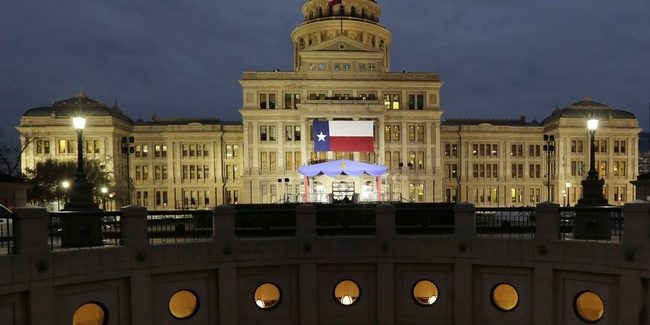The Texas state legislature approved a Republican voting bill Tuesday that looks to protect the integrity of elections in the state, sending the legislation to Gov. Greg Abbott (R) to be signed into law.
Senate Bill 1 passed through the Texas Senate in a 18 to 13 vote, with zero Democrats voting in favor. Last week, the state House approved the legislation with a vote of 80 to 41.
“Protecting the integrity of our elections is critical in the state of Texas, which is why I made election integrity an emergency item during the 87th Legislative Session,” Abbott said in a statement following the bill’s passage. “I thank Senator Brian Hughes, Representative Andrew Murr, Lieutenant Governor Dan Patrick, and Speaker Dade Phelan for stepping up to ensure that this bill made it to the finish line during the second special session.”
Abbott lauded the approval of the legislation and indicated that he will sign it once it reaches his desk. “Senate Bill 1 will solidify trust and confidence in the outcome of our elections by making it easier to vote and harder to cheat,” Abbott said. “I look forward to signing Senate Bill 1 into law, ensuring election integrity in Texas.”
The bill will expand voting hours, increase voting access for registered voters needing assistance, bans drive-through voting and allows poll watchers to have increased access to additional aspects of the election process.
The legislation will also prohibit the distribution of mail-in ballots to people who did not request one and will require those who do request one to provide their drivers license number or the last four digits of their social security number.
SB1 is a compromise between two separate versions of the GOP-backed election bill that passed the state Senate and House earlier this month. In a party-line approval, seven Republican members of a bicameral conference committee signed onto the compromise while the committee’s three Democrats did not. The passage of the bill comes after Abbott resorted to calling multiple special sessions after House Democrats looked to delay the bill’s passage by walking out of the initial legislative session in May, and then departing from the state for Washington, D.C. during July’s special session. Both efforts aimed to temporarily deny Republicans the quorum needed to pass the legislation while Democrats in the nation’s capital pushed for federal election reform.










